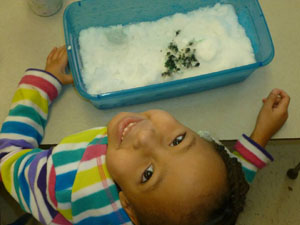 Thumb sucking in infants is natural, harmless and self-soothing – a win-win for baby and parent alike. “During the first year,” says Dr. William Sears, “smart infants figure out that non-nutritive sucking (sucking without feeding) settles upset tummies by activating the flow of saliva.”
Thumb sucking in infants is natural, harmless and self-soothing – a win-win for baby and parent alike. “During the first year,” says Dr. William Sears, “smart infants figure out that non-nutritive sucking (sucking without feeding) settles upset tummies by activating the flow of saliva.”
But by the time babies become toddlers, the negative effects of thumb sucking may outweigh the benefits.
The pressure a thumb and continual sucking puts on the sides of the upper jaw and the soft tissue on the roof of the mouth can cause the upper jaw to narrow, American Academy of Pediatric Dentistry fellow Mary Hayes told WebMD. The narrowing could cause permanent teeth of toddlers to meet improperly from top to bottom, and an imbalance in chewing that could last for years.
By the time your child is old enough for toddler daycare programs, he should have “quit” the thumb completely or sufficiently.
For many toddlers, thumb sucking is a hard habit to kick. You can help.
Breaking the Habit: Dos and Don’ts
Old-wives tales and “common knowledge” is largely debunked these days. For example, sprinkling hot pepper or bitter coating on the thumb is “just cruel," family psychologist Jenn Berman says. "It's pulling the rug out from under your child and that's not fair." Putting a glove or mitten on the hand achieves no real long-term benefit, either.
Instead...
· Use agreed-upon limits to break the habit gradually – no child can quit “cold turkey.”
· Offer an alternative to the thumb, like a toy or a game, to distract him during the day.
· Find bedtime substitutes, like a huggable stuffed animal or a book, to keep her hands occupied.
· Use praise when you catch your toddler in the act of resisting her thumb.





